A resistant and durable material that is easy to clean and versatile. Porcelain stoneware surfaces simplify daily maintenance for those who choose to use them in restaurants, bars, shops, workshops or hospitality facilities. These are contexts in which the wide range of Atlas Concorde products perfectly combines resistance, practicality and design.

Trend
Performance Characteristics of Porcelain Tile
18 November 2021
The choice of a porcelain tile floor can never be based solely on esthetic criteria. The type of environment and its function impose constraints that must be considered. It's actually pretty intuitive: the technical characteristics that the floor of a living room must have are not the same as those needed for a terrace. For an access ramp exposed to the elements you'll need slip resistance that aren't necessary in a boutique located inside a shopping center. Many of Atlas Concorde's floor and wall tile collections are so broad and versatile that they meet most practical needs, which translate into strictly regulated design requirements when it comes to public spaces. This category includes a wide variety of settings: from the shopping center to the small shop, from the restaurant to the hospital, from the railway station to the airport, from the hotel to the convention center.
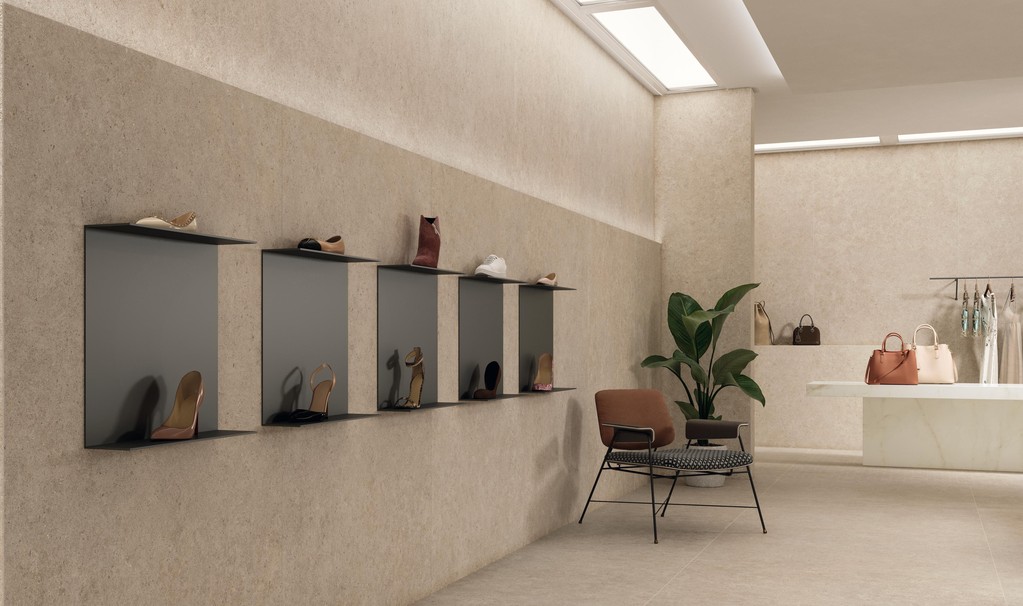
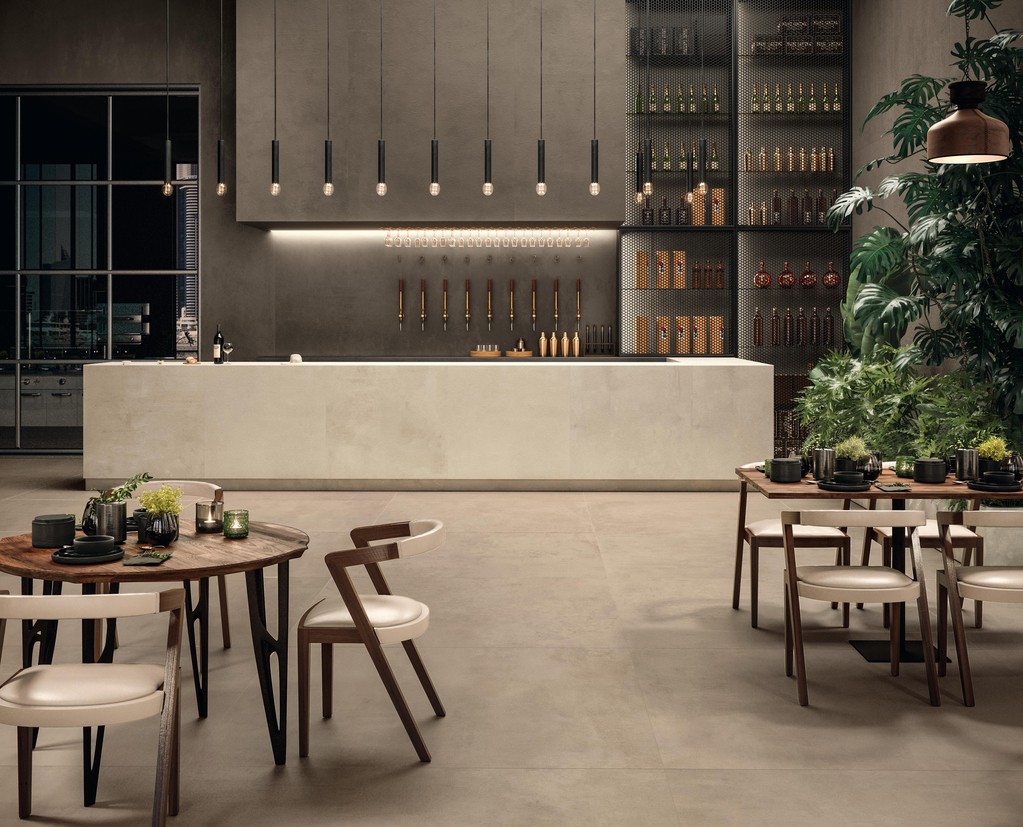
Combining design and functionality is therefore a challenge that particularly concerns designers: flooring in a large commercial space plays a very important role in the design of an environment that is structurally designed to accommodate large numbers of people. As it is constantly on view, the flooring helps to determine the overall atmosphere but must also protect users, simplify cleaning and maintenance operations, and withstand many years of heavy use: intense foot traffic, the passage of trolleys, machinery and other wheeled loads, falling objects and food, and spilled drinks and other liquids. What characteristics of porcelain stoneware make ceramic tiles the preferred choice for public environments? Let's take a look at the main ones.
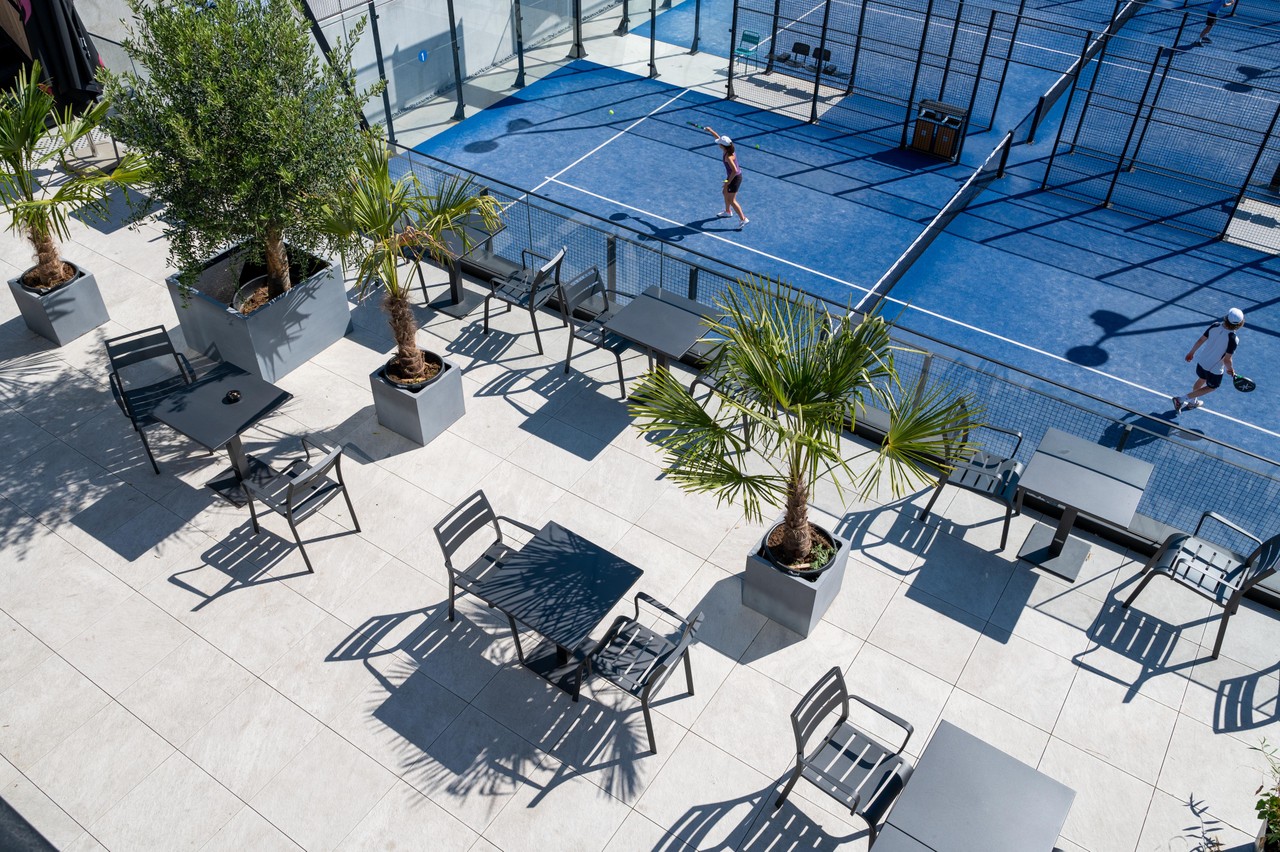
Resistance to breakage and loads
The process for producing porcelain tiles gives them a high degree of consistency and compactness. These characteristics give laid ceramic tiles an extraordinary resistance to mechanical stresses due to traffic.
Resistance to abrasion
Ceramic tiles are exceptionally resistant to wear and tear caused by frequent repeated contact with other moving materials. This means that the appearance of the surface doesn't change over time, maintaining its original sheen and color brilliance. The resistance to abrasion derives from the hardness and compactness of the surface layer, which also determines the behavior of porcelain tile floors with respect to stains and chemical agents.
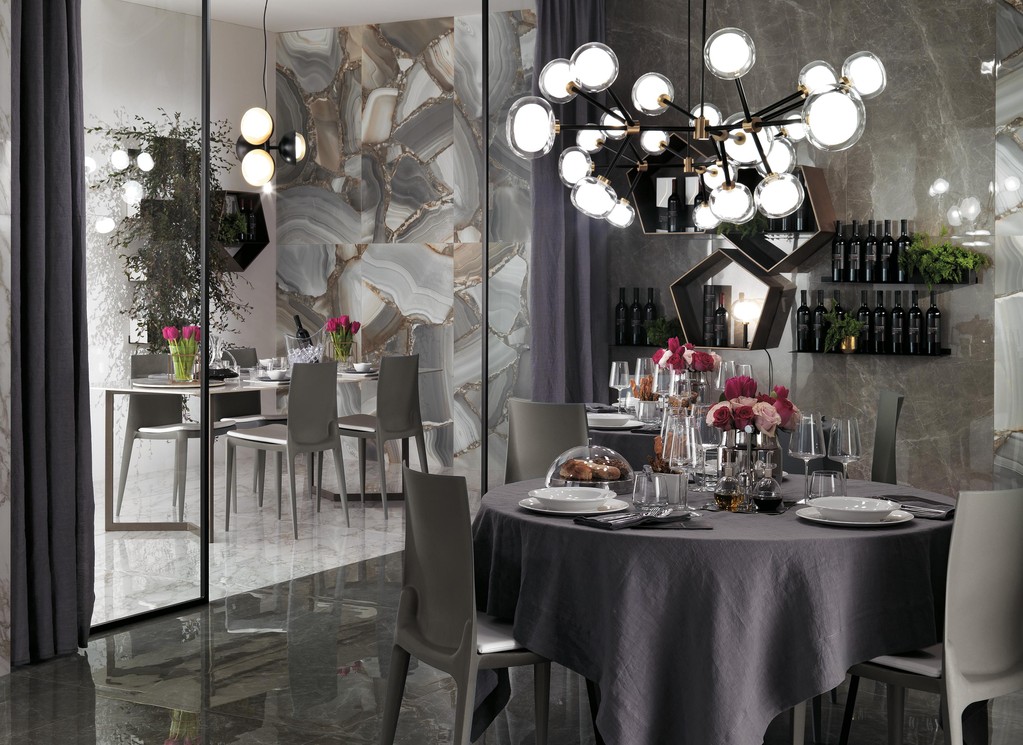
Resistance to chemicals and ease of cleaning
These are well-known properties of ceramic tiles, and, as just noted, are determined by the compactness of the surface: the more compact the surface the less chance that aggressive or staining substances (but also fungi, molds, and bacteria) have of penetrating it. This includes water: the water absorption of porcelain tiles – a parameter that is dictated by regulations – is in fact close to zero. These characteristics make ceramic tiles a hygienic material that is practical and extremely easy to clean. For stains, surface roughness is also an important factor: a smooth surface is certainly easier to clean than a highly textured one, which instead may be preferable where a non-slip surface is a priority.
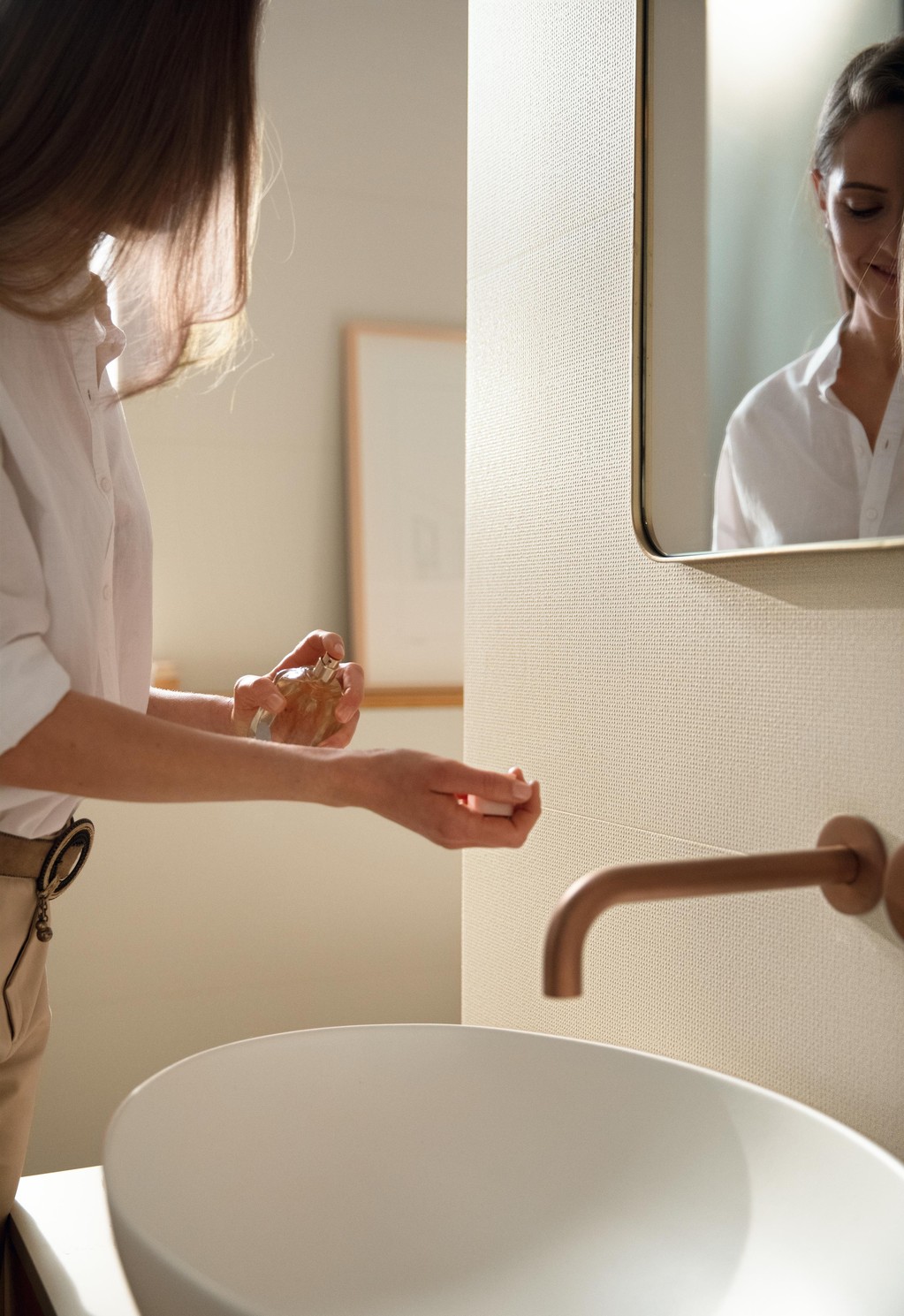
Resistance to slipping
This depends on the roughness of the ceramic tile surface and the presence of reliefs able to ensure the drainage of liquids, for a good adhesion between a shoe's sole and the wet surface. These are physical characteristics that are the opposite of those necessary for a high ease of cleaning (low roughness and absence of reliefs). An irreconcilable conflict? Not necessarily. All the products with a textured surface in the extensive Atlas Concorde collection catalog have excellent levels of resistance to abrasionand chemicals. This means that they are able to withstand particularly vigorous cleaning by machines and chemicals without deteriorating in any way.
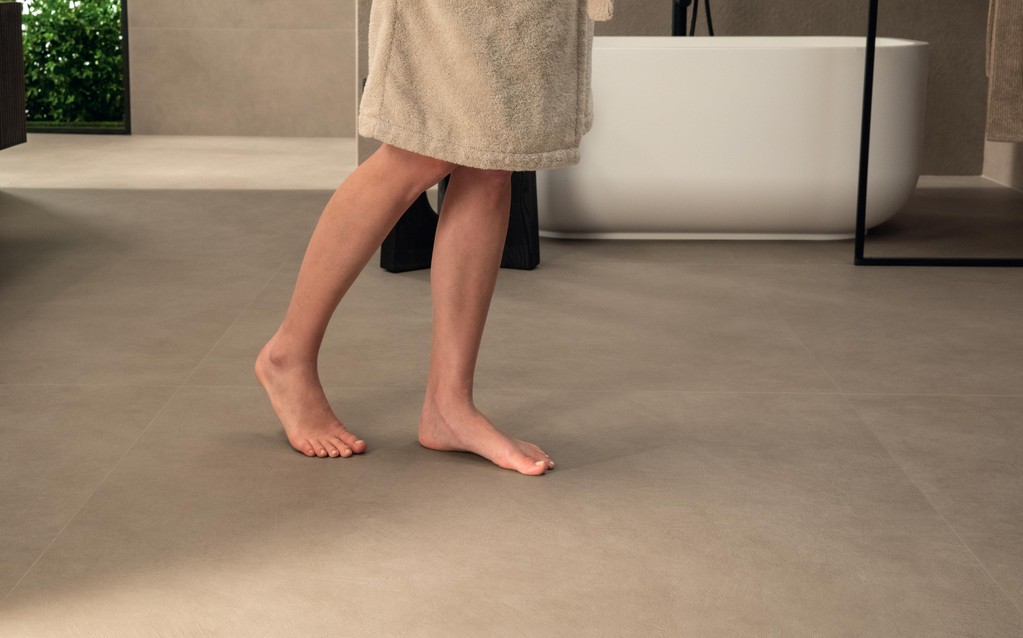
Resistance to fire
As they decompose some materials can contribute to fueling fires. They are therefore divided into fire resistance classes that are carefully assessed when designing places open to the public. Porcelain tiles are one of the safest materials in the event of a fire as they are classified as non-combustible (class A1). As we have seen, the temperature in a kiln is much higher than a normal fire. Explore our gallery of environments and find inspiration for your project whether it be retail, hospitality, wellness, public, or private.








































.jpg?cropw=4096&croph=2654.2479700187387&cropx=9.695217308093677e-13&cropy=76.7520299812622&cropmode=pixel#?w=3840&q=100)

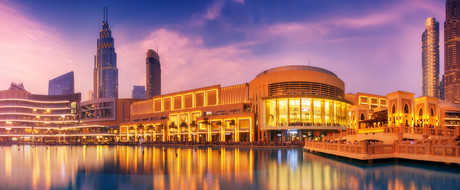





































.tif?cropw=4036.303976681241&croph=2705.4159900062464&cropx=59.69602331875912&cropy=25.584009993753906&cropmode=pixel#?w=3840&q=100)
.jpg?cropw=4096&croph=2978.1919633562356&cropx=0&cropy=93.80803664376384&cropmode=pixel#?w=3840&q=100)


.jpg?cropw=4096&croph=2304&cropx=0&cropy=215.39045431878446&cropmode=pixel#?w=3840&q=100)




